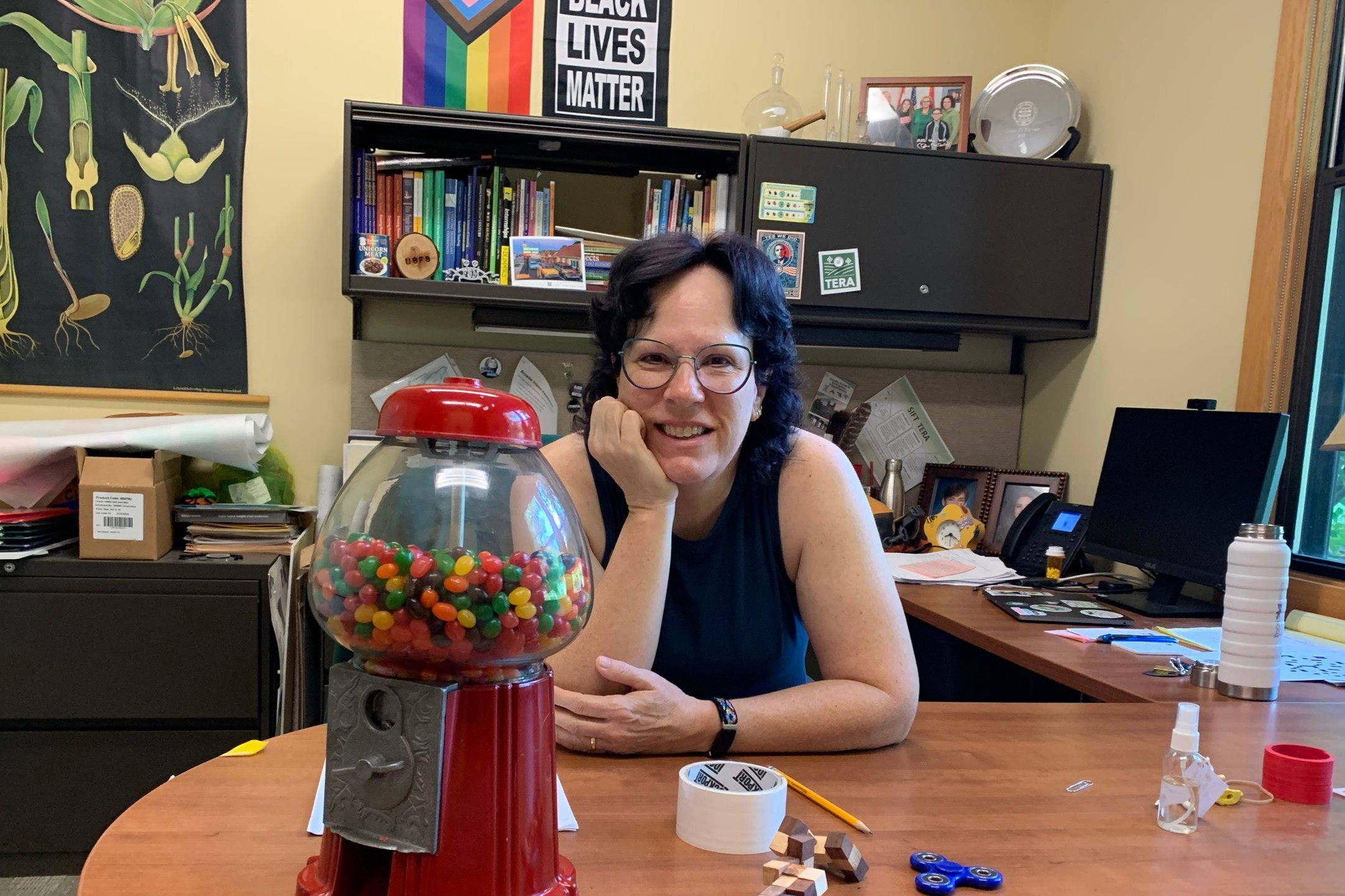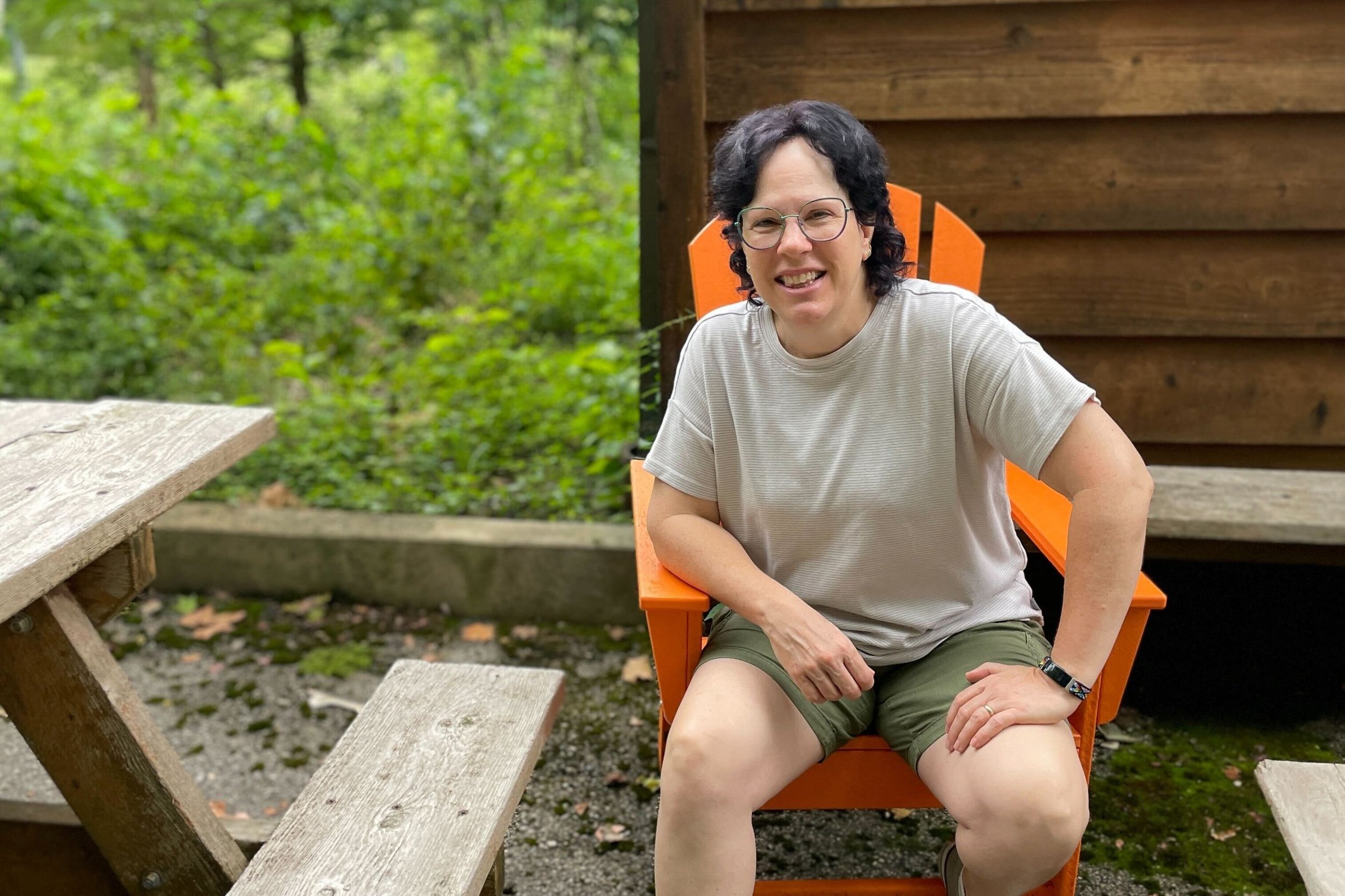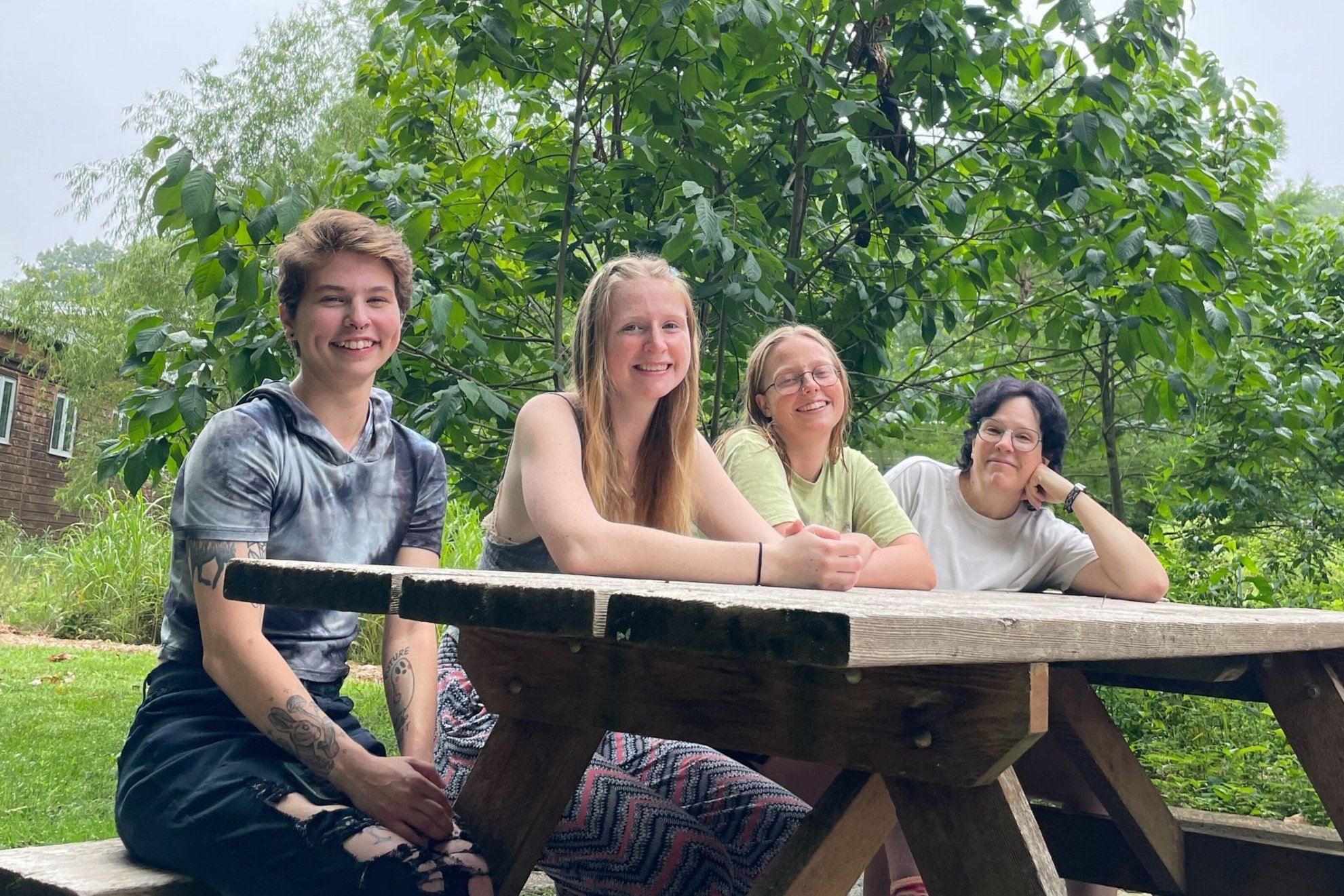Humans of Tyson 2023
Susan Flowers
she/her
Tyson Education, Outreach & DEAI Coordinator
Team Humans
How has Tyson changed?
It does feel like a different place than when I started. For a lot of people Tyson was like a facility, it was a place. And now it is absolutely still a facility and a place, but it is much more powerful in that it's a community. And that was very, very intentional. We have fully integrated research and education, and now so many more students know about Tyson. I think that by building community focused on the educational experiences that are available out here, the word has spread in a way that I don't think that it did before. I keep hearing these stories of people saying, “You should really go to Tyson. It's cool out there. Y'all should make sure that Tyson is part of your WashU experience.”
There's been such great support and buy-in from all of the mentors over the last several years with what we're doing for the broader professional development of the young people that I don't have to focus on some aspects as much anymore. We've kind of landed where we're happy with how we want things to go. Everybody is in agreement that we should be elevating diversity, equity, inclusion, sense of belonging, accessibility, and all of that within our program explicitly. And so that makes it way easier than going, what do you think we should do in colloquium this year? We know what we're gonna do in colloquium. It's gonna look a little different each summer, but we know what our agenda is around that.
Where do you see Tyson headed?
“I’m just really excited about how Tyson can continue to grow in different directions because we’re not scared of growing in different directions.”
This is an environmental field station, but we're interdisciplinary. Suzanne Loui’s Humans of Tyson project gave us permission to start thinking about things differently, emphasizing the humanity of folks and the fact that we are humans doing the science. So that's then opened up the talks about how to tell Tyson’s history. There's all this opportunity and if we've been struggling to get a historian out here, let's just tell the history ourselves. We'll consult with a historian and do the work in house. I'm excited about that. I think it fits right along with all of the other teams in that every season is different and sometimes we don't know what we're doing yet. We'll consult with people to figure out how to go about it and not be intimidated. We shouldn't avoid taking something on just because it’s not our “area of expertise.” So I'm just really excited about how Tyson can continue to grow in different directions because we're not scared of growing in different directions.
How have you had to adjust to the specific needs of this summer?
Every summer you go into it thinking we've wrestled with every possible problem there could have ever been. But of course, every summer is literally different and the students are changing, all of us are changing, you know? Every year's cultivation of a sense of belonging for the community is gonna be specific to that year's community. We learn something each year and then we apply it, and then that's just the way we do it now. And so every summer I feel like we're adding something that becomes “this is how we do it now.” This summer it was really great to have some folks who were willing to be very open and transparent with their needs so that we could make sure that we were learning how to support those needs, to make sure someone was getting what they needed to feel successful in the space. We can anticipate, we can learn, we can try to get ahead of things, but it's wonderful when we get those very brave individuals who can be very honest with us about their experience so that we can make it better for everybody.



